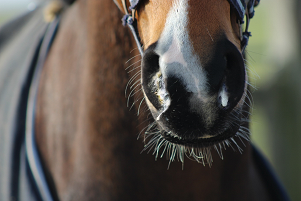The FEI has issued guidelines to the equestrian community to protect horses from and prevent transmission of equine influenza, following confirmed outbreaks of the virus in Belgium, France, Germany, Great Britain, Ireland, Nigeria, and the United States of America since the beginning of the year. Equine influenza is a highly contagious virus which causes respiratory disease in horses. The virus is endemic to most countries in the world and outbreaks can have a severe impact on the equine industry, potentially resulting in restrictions on horse movement and cancelled events. “Vaccinating horses against equine influenza is key to combating the spread of equine influenza,” FEI Veterinary Director Göran Åkerström said. “It is important that all horses are vaccinated, regardless of whether or not they compete or come into contact with other horses, but there are also biosecurity measures that should be put in place, including best hygiene practices.” All FEI horses must have an up-to-date vaccination history in their passports and checks are carried out on entry to all FEI events. The air-borne virus can spread up to two kilometres, depending on the environmental conditions, and can be easily transmitted between horses that are in close contact, such as attending events, group training and hunting, or between vaccinated and unvaccinated horses in the home yard. Any horse that displays any signs of illness should not leave their home yard. This also applies to any horse that has been in contact with a horse or horses that have equine influenza. “This year we are seeing a return of the Clade 1 virus in infected horses. Vaccinated horses have suffered only mild clinical signs of the disease and recovered quickly, but unvaccinated horses have been much more severely affected”, FEI Veterinary Advisor Caterina Termine said. “The key message is, get your horse vaccinated, monitor horse health extremely closely and call your veterinarian if you have any concerns.” The FEI’s comprehensive question and answer document on equine influenza is available here. Please visit FEI Campus for a course on Equine Influenza: A Horse Owners Guide.
FEI issues guidelines on equine influenza outbreak
-
categories:

